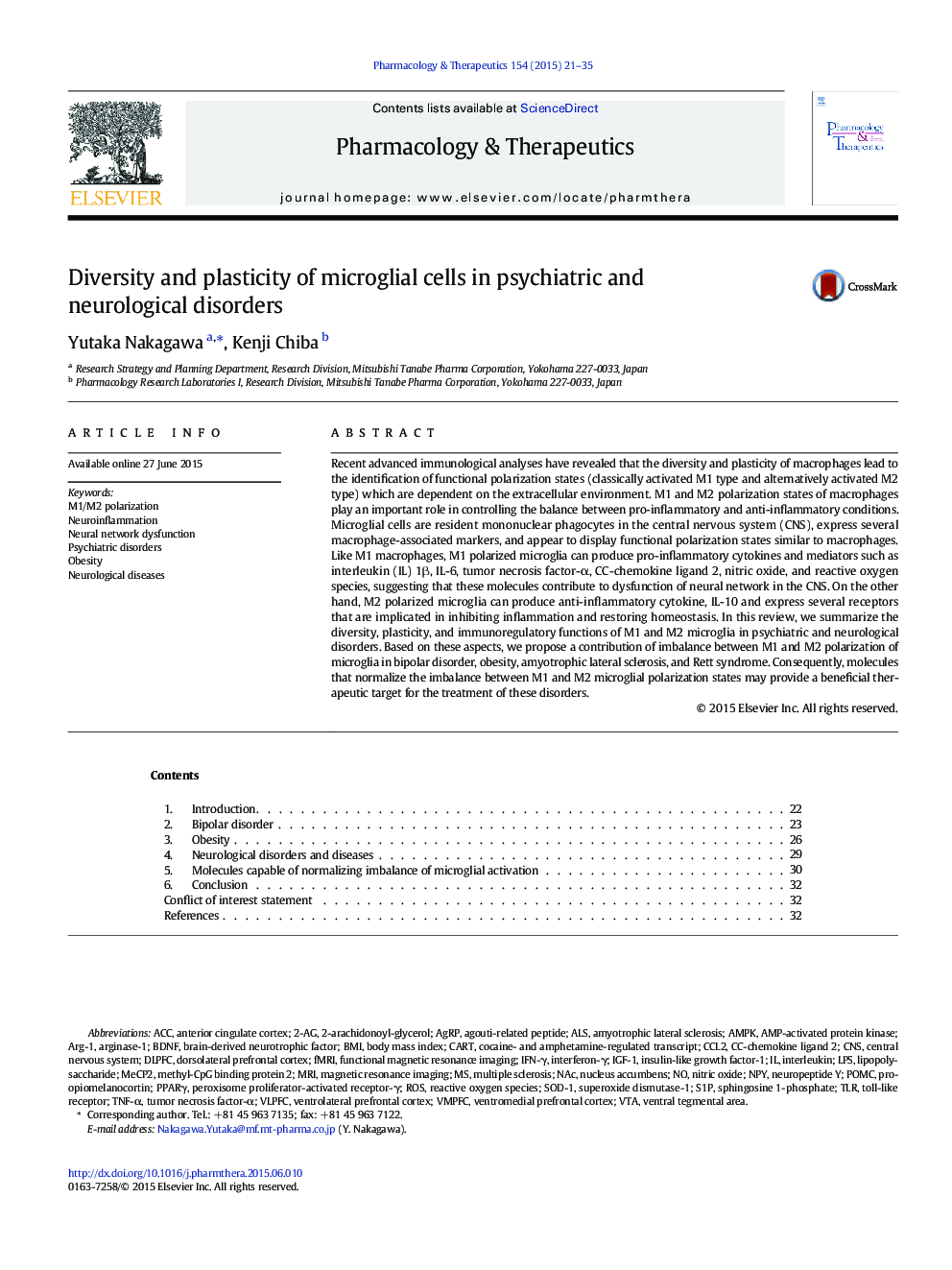| Article ID | Journal | Published Year | Pages | File Type |
|---|---|---|---|---|
| 5843926 | Pharmacology & Therapeutics | 2015 | 15 Pages |
Recent advanced immunological analyses have revealed that the diversity and plasticity of macrophages lead to the identification of functional polarization states (classically activated M1 type and alternatively activated M2 type) which are dependent on the extracellular environment. M1 and M2 polarization states of macrophages play an important role in controlling the balance between pro-inflammatory and anti-inflammatory conditions. Microglial cells are resident mononuclear phagocytes in the central nervous system (CNS), express several macrophage-associated markers, and appear to display functional polarization states similar to macrophages. Like M1 macrophages, M1 polarized microglia can produce pro-inflammatory cytokines and mediators such as interleukin (IL) 1β, IL-6, tumor necrosis factor-α, CC-chemokine ligand 2, nitric oxide, and reactive oxygen species, suggesting that these molecules contribute to dysfunction of neural network in the CNS. On the other hand, M2 polarized microglia can produce anti-inflammatory cytokine, IL-10 and express several receptors that are implicated in inhibiting inflammation and restoring homeostasis. In this review, we summarize the diversity, plasticity, and immunoregulatory functions of M1 and M2 microglia in psychiatric and neurological disorders. Based on these aspects, we propose a contribution of imbalance between M1 and M2 polarization of microglia in bipolar disorder, obesity, amyotrophic lateral sclerosis, and Rett syndrome. Consequently, molecules that normalize the imbalance between M1 and M2 microglial polarization states may provide a beneficial therapeutic target for the treatment of these disorders.
